European Platform for Digital Humanism
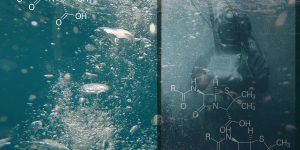
Meet the S+T+ARTS Community: Art & Sience Collaborations
Ingeborg Reichle (AT), Michael Sauer (AT), Robertina Šebjanič (SI), Gjino Šutić (HR)
Wenn KünstlerInnen, WissenschaftlerInnen und wissenschaftliche Forschungseinrichtungen in gemeinsamen Projekten zusammenarbeiten, führt die Kollision von Methoden oft zu neuen und spannenden Perspektiven für die künstlerische und wissenschaftliche Praxis.
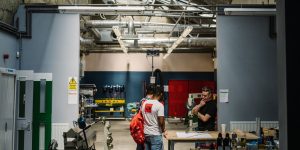
UrbanM
STEAMHouse, Birmingham City University (UK)
Urban M is an Interreg Europe project led by Birmingham City University, its aim is to support nine European Cities to develop their city and regional innovation policies to help local makerspaces thrive.
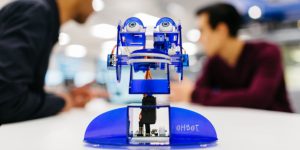
The STEAMhouse Approach
STEAMhouse, Birmingham City University (UK)
STEAMhouse is a centre for innovation, creative thinking, prototyping and business development. STEAMhouse supports entrepreneurs, sole traders, companies and citizens to build their businesses, develop products and services and bring new ideas to life. The centre supports both city and business challenges and takes an interdisciplinary approach to these issues. STEAMhouse is a partnership between Birmingham City University and Eastside Projects and funded by the European Regional Development Fund., It aims to drive innovation and research for major long-term growth across the region.
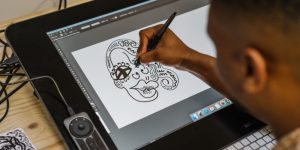
STEAM INC
Ars Electronica (AT), Science Gallery at Trinity College Dublin (IE), Birmingham City University (UK), University of Arts London: Central Saint Martins (UK), Aalto University (FI), Technische Universität Dresden (DE), University of Amsterdam (NE)
Rapid change requires rapid adaptability, and our capacity to adapt is informed by our ability to integrate diverse approaches. To accommodate this, higher education has needed to transcend an historically embedded approach to learning that has seen different types of knowledge segregated across disciplinary silos. Policy ambitions throughout Europe and across the world have recognized that knowledge in science, engineering and mathematics need to be nurtured to engage with rapid advances in technology. However, it has also become increasingly evident that art as a unique and adaptive form of knowledge should also be combined with our approach to STEM education. Art thinking offers a holistic way of understanding complex connections and can act as a translator between different communities of knowledge. By including art, STEAM education ensures that there is an interdisciplinary switchboard operator actively integrating different approaches to solving the same problems we face today.
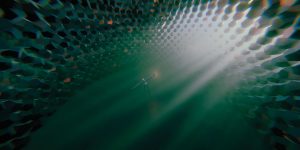
AI x Uncertainty
Jurij Krpan (SL) Speakers: Christl Baur (AT), Suzanne Livingston (UK), Špela Petrič (SL), Stephanie Dinkins (US)
Das Panel konzentriert sich auf die Einschränkungen und Unsicherheiten, mit denen KünstlerInnen im Umgang ihrer künstlerischen Praxis mit KI konfrontiert sind. Was sind die Herausforderungen der Zusammenarbeit an der Schnittstelle zwischen KI und Kunst? Welche Fortschritte lassen sich erkennen, und wo scheitert sie? Mit welchen Problemen sehen sich KünstlerInnen konfrontiert? Welche Rahmenbedingungen müssen geschaffen werden, damit KünstlerInnen Zugang zu den neuesten Forschungsergebnissen erhalten?
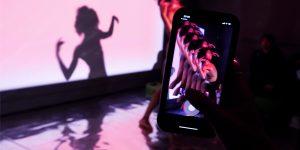
Exhibition: Augmented Empathy
As part of The Living Planet, FACT’s programme focusing on the non-human, the artist collective Keiken have developed a multi-layered participatory project called Augmented Empathy in collaboration with FACT’s Learning team.
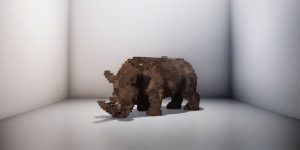
Exhibition: And Say the Animal Responded?
This immersive exhibition brings you face to face with animals from around the world through film, art and creative technology.
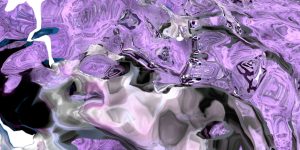
Women in Art, Science and Technology
Marta de Menezes (PT), Dalila Honorato (GR/PT), Ebru Yetiskin (TR), Ionat Zurr (AU), Jo Wei, Kathy High (US), Laura Beloff (FI), María Antonia González Valerio (MX), Victoria Vesna (US)
Das Panel On Roots and Fruits ist eine Sammlung von Vorträgen einiger Gründungsmitglieder von FEMeeting: Frauen in Kunst, Wissenschaft und Technologie über die Auswirkungen von Konferenzen und anderen Aktivitäten der Community und die zukünftige Entwicklung von Frauen in Kunst, Wissenschaft und Technologie. Ziel von FEMeeting ist die Verbreitung von Projekten, die von Personen, die sich als Frauen identifizieren, durchgeführt werden, um (a) zur Entwicklung von Forschungsmethoden in Kunst und Wissenschaft und (b) zur Entwicklung von Strategien der Zusammenarbeit beizutragen, die den Wissensaustausch fördern und Gemeinschaften zusammenbringen können.
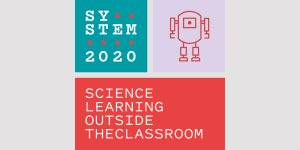
SYSTEM2020 Learner's Perspectives
Discover how learners involvement with out of school science education has allowed them to expand their knowledge and adapt with the changing world around them.
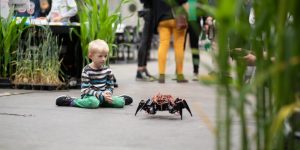
OSHub.Network
Ars Electronica (AT), Science Gallery at Trinity College Dublin (IE), Impact Hub Siracusa (IT), La Casemate (FR), Onl'Fait (CH), SCIENCE IN (CZ), Município de Figueira de Castelo Rodrigo (PO), SciCo (GR)
The pace of change in society - from technological innovation to global interconnectedness - is rapidly increasing and has fundamentally altered the way people live, work and learn. Moreover, the societal challenges of the 21st century bring with them an urgent need to integrate the knowledge and expertise of different societal actors, and to develop meaningful and inclusive ways of connecting schools, universities, enterprises, civil society, governments and local communities using more innovative, efficient and open methodologies.

The Women in Media Art: Telematic Performance
Ximena Alarcón (UK/CO), Anat Ben David (UK/IL), Alex Murray-Lesley (ES/NO/AU), Tina Frank (AT), Claudia Schnugg (AT)
Dieses Panel wird Ansätze der telematischen kollaborativen Kunstproduktion und telematischen Kunstrezeption durch die Stimmen von vier Künstlerinnen und Forscherinnen untersuchen, die über Erfahrungen in der innovativen Produktion von telematischen Performances und kollaborativer Musikproduktion verfügen.

Women in Media Arts
Ars Electronica (AT)
Im Jahr 2016 eröffnete Ars Electronica eine der größten Online-Datenbanken für Frauen in der Medienkunst. Diese Datenbank, die zunächst den Pionierinnen der Ars Electronica gewidmet war, wurde schließlich für alle Künstlerinnen geöffnet, die mit digitalen Mitteln für den künstlerischen Ausdruck arbeiten. Damit wurde ein ganzer Programmschwerpunkt gesetzt, der dieses Jahr in zwei Panels präsentiert wird.

SYSTEM2020 Map
Science learning initiatives outside the classroom are crucial in educating and forming Europe’s next generation of researchers and innovators. By gaining insights into these initiatives all around Europe SySTEM 2020 wants to gain a better understanding of the types and kinds of programmes in operation, learn from each other and collaborate to be able to respond to challenges ahead. The SySTEM 2020 map is an online visualisation tool where over 2000 STEAM initiatives or projects are mapped providing a network of organisations for you to connect with. For the general public it offers a way to find informal learning initiatives in their area. For organisations it offers the opportunity to get connected and gain visibility as a collective community within Europe.
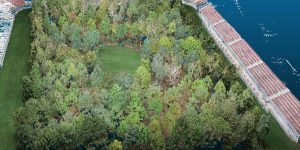
AI x Ecology
Carla Gomes (US/PT), Tega Brain (AU), Mark Coeckelbergh (BE), Lynn Kaack (DE), Stafano Nativi (IT), Claire Monteleoni (US), Martina Mara (AT)
Das Panel AIxEcology befasst sich mit der Bedeutung computergesteuerter Systeme für Ökologie und Umwelt. Künstliche Intelligenz kann eingesetzt werden, um Wasser zu sparen, den Artenverlust zu stoppen oder bestimmte Pflanzen im Feld ausfindig zu machen. Die optimierte Überwachung von Ökosystemen kann wesentlich dazu beigetragen, die Risiken des Klimawandels zu verringern und diesen entgegenzusteuern, zumal immer mehr Projekte versuchen, Daten und künstliche Intelligenz dafür zu nutzen.
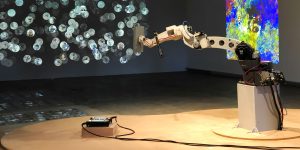
The New Real: Experiental AI and the AI Lab
Jake Elwes (UK), Drew Hemment (UK), Caroline Sinders (US), Anna Ridler (UK), Mahir Yavuz (TR)
The New Real erforscht die Grenze zwischen dem Realen und dem Künstlichen, während wir versuchen, in die so genannte "Neue Normalität" einzutauchen und sie zu verstehen. Individuelle und kollektive Resilienz fußt auf der breiten Nutzung vernetzter Online-Tools und -Umgebungen durch eine Mehrheit der Bevölkerung in den unterschiedlichsten beruflichen und privaten Umgebungen. Gleichzeitig entfaltet sich die Krise in einem Kontext, in dem das Vertrauen in datengesteuerte Online-Inhalte und die Interaktion wie nie zuvor in Frage gestellt werden.
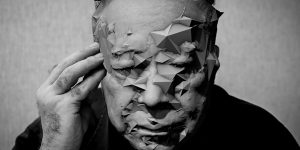
AI x Humanity
Rasha Abdul-Rahim, Adam Harvey (US/DE), Nye Thomson (UK), Milena Marin (RO), Victoria Vesna (US)
Mit den jüngsten Fortschritten in der künstlichen Intelligenz erlangen sie zudem die Fähigkeit zu lernen, sich zu verbessern und autonome Entscheidungen zu treffen. Damit können sie Aufgaben erfüllen, von denen man bisher annahm, dass sie menschliches Fachwissen, Kreativität und Intuition erfordern. Das bedeutet, dass Algorithmen, künstliche Intelligenz, Maschinen und Robotik ein Potenzial bergen, dass unser heutiges Verständnis von Menschlichkeit in Frage stellt. Welche Herausforderungen und Chancen ergeben sich daraus?

AI x Art & Society
Im Rahmen des European ARTificial Intelligence Lab wird dieses Jahr eine Reihe von Podiumsdiskussionen präsentiert. Mit dem Ziel, die Auswirkungen von KI auf die Gesellschaft zu erläutern und darüber aufzuklären, findet jeden Abend eine Podiumsdiskussion zu einem anderen Thema statt. Die Panels bringen wissenschaftliche, technologische und künstlerische ExpertInnen zusammen, um zu einer kritischen und reflektierenden Debatte über den technologischen und wirtschaftlichen Horizont der künstlichen Intelligenz hinaus beizutragen.
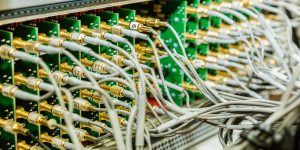
Ars Electronica AIxMusic Online Hackathon: Final Presentations
Annelies Termeer (NL) moderator + Participants
Anlässlich des ersten Online-Festivals veranstaltet Ars Electronica seinen ersten internationalen AIxMusic Hackathon im Rahmen des AIxMusic Festivals 2020.
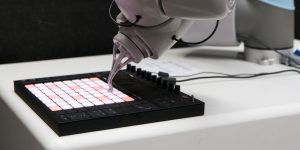
AIxMusic - Artificial Stupidity
Moisés Horta-Valenzuela (MX/US), Artemi-Maria Gioti (GR), Ali Nikrang (AT), Alex Braga (IT) and Portrait XO (US)
Das Panel "Artificial Stupididity" lädt KünstlerInnen des Ars Electronica Festivals ein, ihre Erfahrungen im Kontext von AIxMusic auszutauschen. Das Thema KI bekommt aktuell große Aufmerksamkeit in den Medien und wird kontrovers behandelt.
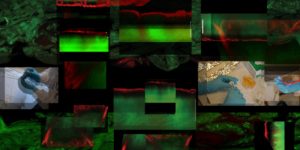
Demystifying Arts and Sciences through Playful Creative Technologies
Jo Berry (UK)
Jo Berry has implemented playful, creative methodologies to seek art's value, purpose and interpretational impact when it takes as its start point advanced imaging and microscopy. Her claim is that art can be a significant contributing factor to new directives in advanced imaging and microscopy; its impact intensified through applying play as a method to interrogate ideas, processes and outcomes. She offers a new model of research, which engages play as the critical driver to accomplish a more agile, accessible and open method of examining science via a different set of criteria. This hypothesis is based on my own prior experience as a researcher working directly with scientists and experiencing scientific method where I became convinced that artists should be central to scientific inquiry not just working on the periphery. As it would seem there needs to be a paradigm shift within science which, she claims, can be activated through examining play through art and identifying its effect on aspects of culture, creativity and aesthetics.


